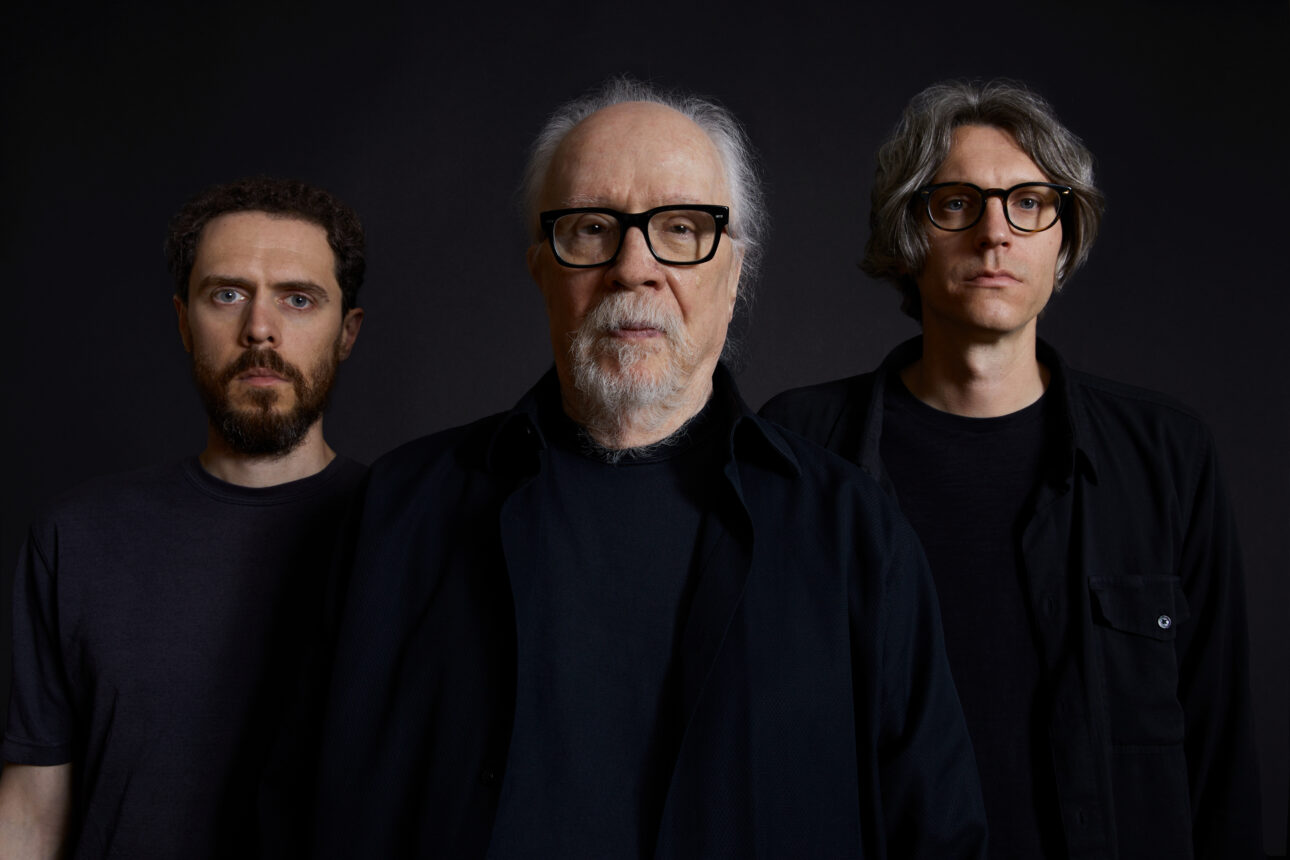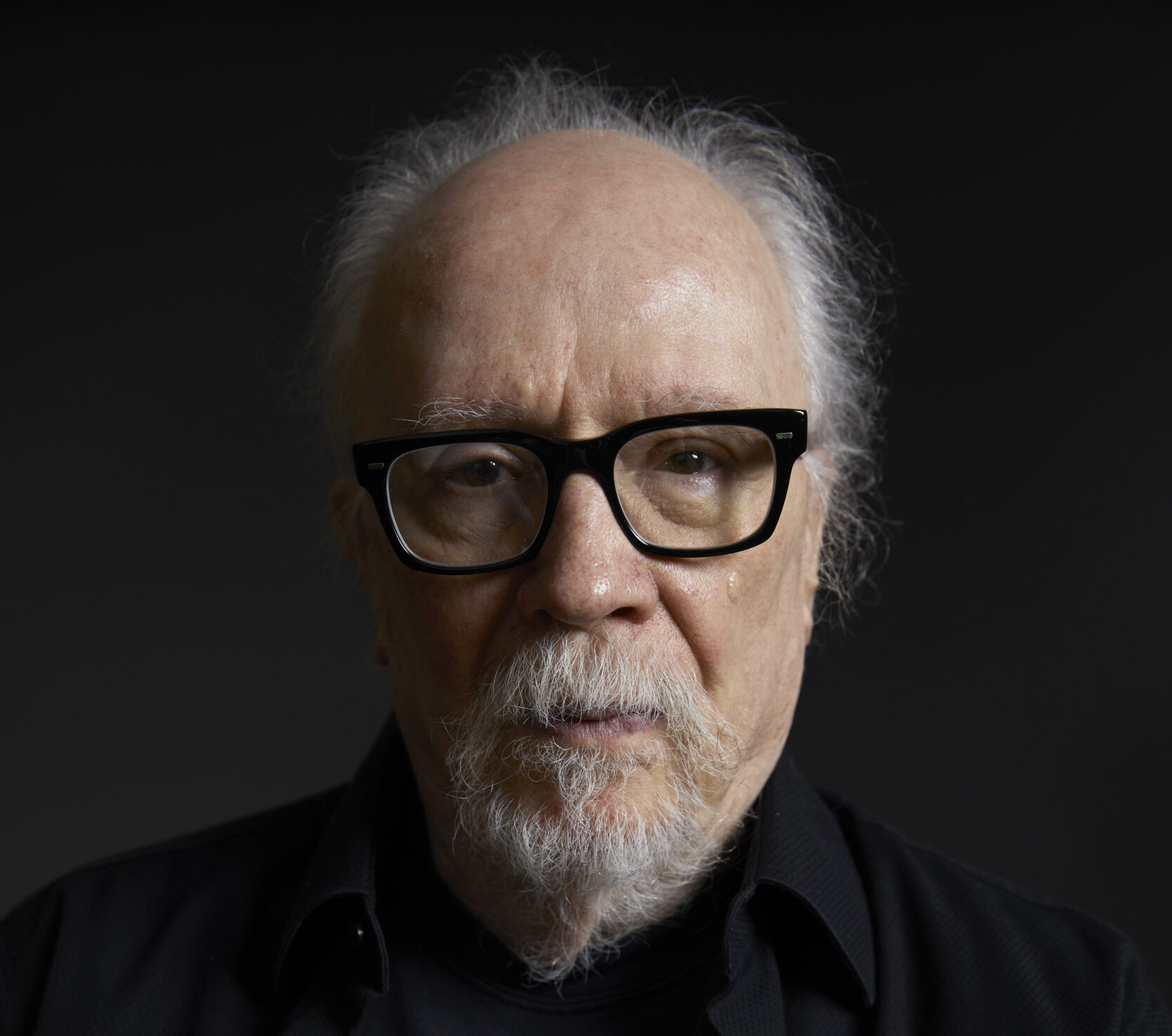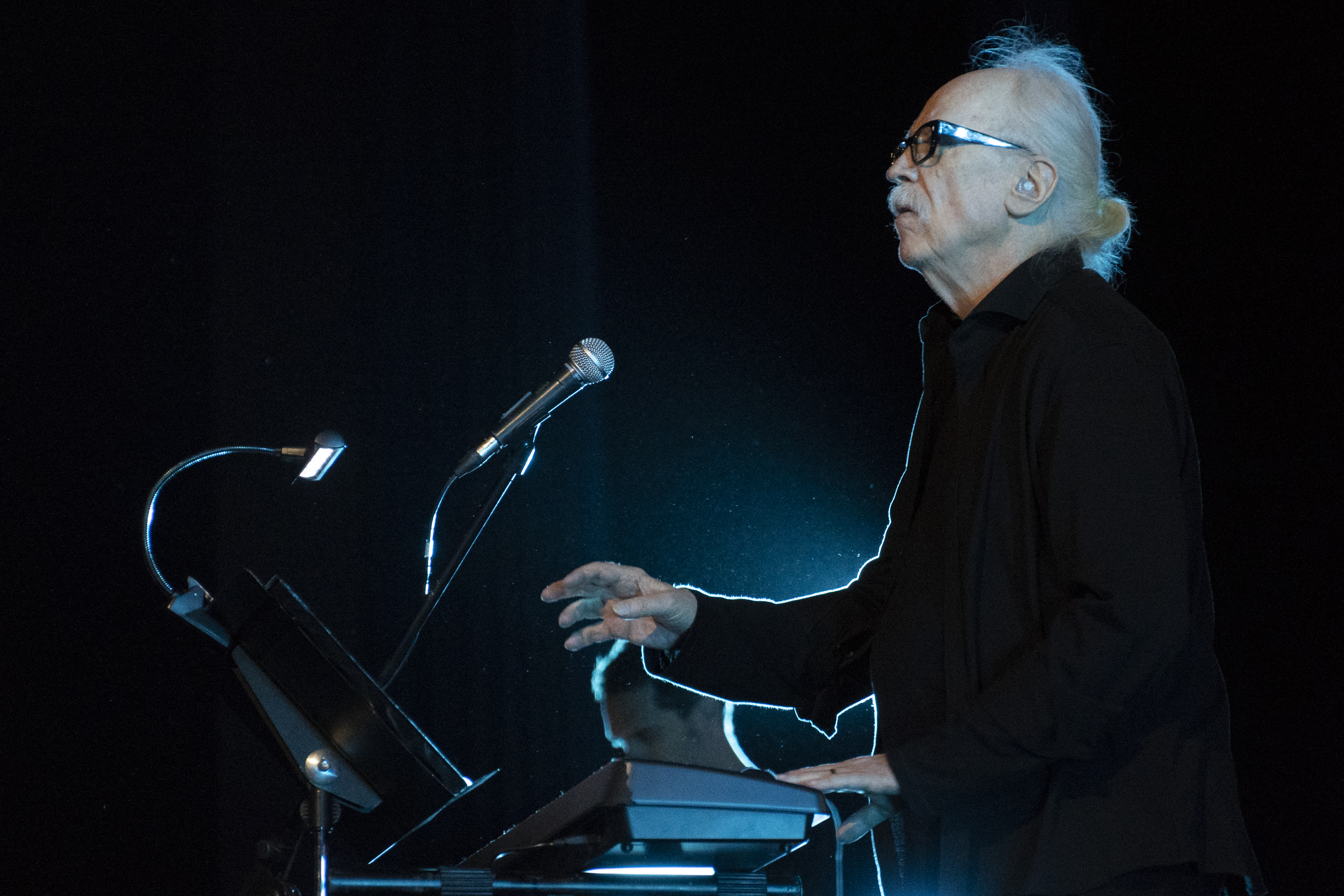Filmmaker John Carpenter spent decades building a legacy of horror and science fiction, terrifying audiences with The Thing, They Live, Vampires, and his groundbreaking 1978 slasher horror film, Halloween. But at 75, the director expects to spend this year’s All Hallows Eve the way he usually does: “sitting on my ass watching basketball.”
He’ll be at home alone in the Hollywood Hills, while his wife, producer Sandy King, will be in costume handing out candy from their nearby offices. But he’s already had a busy October, not only marking the 45th anniversary of Halloween but also releasing an album of his film scores, Anthology II: Movie Themes 1976-1988, and premiering the new Peacock TV anthology series, John Carpenter’s Suburban Screams. “It’s my time of year,” he admits.
It’s been that way ever since he first introduced a deranged masked killer named Michael Myers in Halloween, establishing Carpenter as a leading genre director and Hollywood brand name. The film is now preserved by the Library of Congress as part of the esteemed National Film Registry. “I never expected this thing to have any legs or life. I just hit a nerve,” he says, still sounding amazed. The film’s young then-unknown star Jamie Lee Curtis, a recent Oscar winner for last year’s Everything Everywhere All at Once, is also going strong. “She’s doing just great. She got an Academy Award and now she can become a diva and make fun of everybody else,” Carpenter says.
Another legacy of the film is the tense and haunting score Carpenter composed, establishing himself as one of the few directors beyond Clint Eastwood and Charlie Chaplin to successfully create music for their films. Carpenter has composed the music for most of his movie projects, including his first feature, the 1974 space-faring black comedy Dark Star. Along the way, he’s been a leading proselytizer for synthesizer music, a lasting influence heard in the ’80s-flavored sounds on Netflix’s Stranger Things series and 2011’s Drive.
For Carpenter, making music was as much about saving money in his budget as inspiration. As he was writing his Halloween theme, the director had no expectation the score would be remembered beyond the needs of a scene, much less as a recognizable cultural touchstone in the horror genre. “No, I don’t go, ‘Oh, wow, I’ve done it now. I’m so cool!’ That’s not how it works,” he says. “It became a famous theme. I’m lucky that way.”
His new Anthology II collects new re-recordings of several movie music pieces, including from the films They Live, The Fog, and Escape From New York. It joins more than 25 albums released under his name, most of them official motion picture soundtracks. He’s also released a series of Lost Themes collections.
“That’s way too many. Wow, nobody needs that,” he says with a laugh. “All this stuff is improvised and it just comes out of my head, which is full of crap anyway. My approach to music is: what does the scene require? Not what I want to do, but what’s needed in terms of character or mood or thematics? So that’s what I do.”
Carpenter is a lifelong admirer of film composers Bernard Herrmann (Psycho, Citizen Kane, Taxi Driver), Dmitri Tiomkin (High Noon, Giant), and Ennio Morricone, who was recruited to provide the music for 1982’s The Thing, a rare score for Carpenter that he didn’t write himself. “Wonderful man, and he was experimental,” he says fondly of the Italian musician, who died in 2020. “I loved his score for Once Upon a Time in the West. That was incredible.”
Born in New York, Carpenter grew up amid the classical music played at home by his father, a college music professor and virtuoso on viola. A fan of both classical and pop, Carpenter has been playing music himself since childhood, but dismisses his abilities. “I have moderate chops,” he says. “I don’t have anything special, but I have an ear and I have a lot of melodies that get in there. And that’s my strength.”
On recent recording projects and occasional live performances, he is joined by two younger collaborators – his son, keyboardist Cody Carpenter, and godson, guitarist Daniel Davies. He notes that Davies is the son of his friend, Kinks guitarist Dave Davies, and has inherited some of the classic rocker’s gifts.

“They each bring enormous strengths. Cody is a virtuoso on the keyboards and piano. Daniel’s a virtuoso on the guitar,” says the director. “We’ve just grown together since we started improvising. It’s fantastic for us. There are certain things you do with electronic music that you don’t need to do when you’re doing orchestral music, but they know how to do all that shit. They know more than I do now, which is just great.”
This recording and performing career is a surprising late chapter for Carpenter, who committed more than three decades to his work as a director. His stature as a distinctive filmmaker has only grown over the years, even for work that was shunned at the time.
Among those is his 1982 version of The Thing, released a month after the family-friendly E.T. the Extra-Terrestrial. It was lambasted by mainstream critics but is now considered a classic. The Thing has been praised by Martin Scorsese and Quentin Tarantino for its dramatic intensity and groundbreaking practical effects, which remain terrifying and grotesque.
“Look, this movie was a special case because it was hated by people when it came out,” says Carpenter. “Part of that was just it was my turn to be attacked. The thing that happens is, you’re Orson Welles for a minute, and then you’re a piece of shit.” He laughs and adds, “That’s the way it goes. Everybody has that in their career. It was my turn.”
The film’s disappointing box office numbers had immediate consequences for Carpenter, who lost another directing job as a result. Movie critics were back in his corner two years later for Starman, which earned an Oscar nomination for actor Jeff Bridges, but The Thing experience left a mark. “I have a fantasy about just spending five minutes per film critic in a locked room, and that’s all. Five minutes,” he says with a laugh. “Then I’ll be happy. But I don’t think I will be. What can I do? A lot of these people are dead anyway, so who cares?”
His last film as a director was 2010’s The Ward, starring Amber Heard. But he was back in that role briefly as director of John Carpenter’s Suburban Screams, a six-episode anthology series of reality-based horror. Carpenter and his wife are executive producers. For the season-closing episode “Phone Stalker,” Carpenter directed for the first time in 13 years, but he did it virtually from the comforts of his home while the cast and crew were on-set in Prague. “I directed from my living room here, which is a great deal now, and a whole lot less stressful,” he says. “Oh, fabulous.”
Like Halloween, The Fog, and several other projects, the miniseries explores disturbing hidden stories beneath the surface of suburbia. “It can be terrifying,” Carpenter says. “What’s going on underneath in these houses? What’s going on in these people’s lives? Apparently, it’s so peaceful, but it’s not at all. People are up to no good, because they’re people.”
Often left out of Carpenter’s biography is another high-profile success that immediately followed the original Halloween, when he was hired by Dick Clark to direct a TV movie about the life of Elvis Presley. Elvis, with Kurt Russell in the lead, was the first movie biography about the king of rock ‘n’ roll when it was released two years after his 1977 passing. It was a huge critical and ratings success which transformed Russell into a star and began his long association with Carpenter through multiple film projects.
“I was a low-budget filmmaker, and along came this project from Dick Clark Productions called Elvis. And I thought I’ll do it. I just loved Elvis,” Carpenter recalls. “That show was a baptism of fire for a director. So here you have a 30-day shoot, 180 different locations, 150 speaking parts, and it covered the ’50s and ’60s. I mean, come on, just a kid like me doing that? But I managed to do it, and wow, it was tough.”
He hasn’t seen Baz Luhrmann’s epic Elvis from last year, but he is intrigued with what Sofia Coppola might have done in her just-released Priscilla, telling the story from Priscilla Presley’s perspective. His fellow directors also have his sympathy now that he’s enjoying the ease of life as a musician compared to the high-pressure role of movie director. “Well, it became a nightmare. I love cinema. That’s my first love of my life. That’s my muse,” he says. “But if you’re a professional director, there’s an enormous amount of pressure involved. And after a while, the stress gets to you. You can’t live a life like that. So I had to stop.” He laughs again. “John, stop before you die!”
Likewise, Carpenter has enjoyed being a composer on the recent Halloween chapters directed by David Gordon Green, 2021’s Halloween Kills and 2022’s Halloween Ends. Carpenter was an executive producer on both, but got nowhere near the director’s chair.
He says he’s open to directing again and is currently exploring a new movie project he wouldn’t detail. While he frequently jokes about his age, Carpenter is aware that Eastwood is still in action at 93, and was making a new film this year, Juror No. 2, until it was interrupted by the Hollywood actor strike. “It’s unbelievable. It’s like being a coal miner – that’s the kind of work you’re doing,” he says of Eastwood and the physical demands of directing. “I have a feeling that at my funeral Clint Eastwood will be making his next film.”





